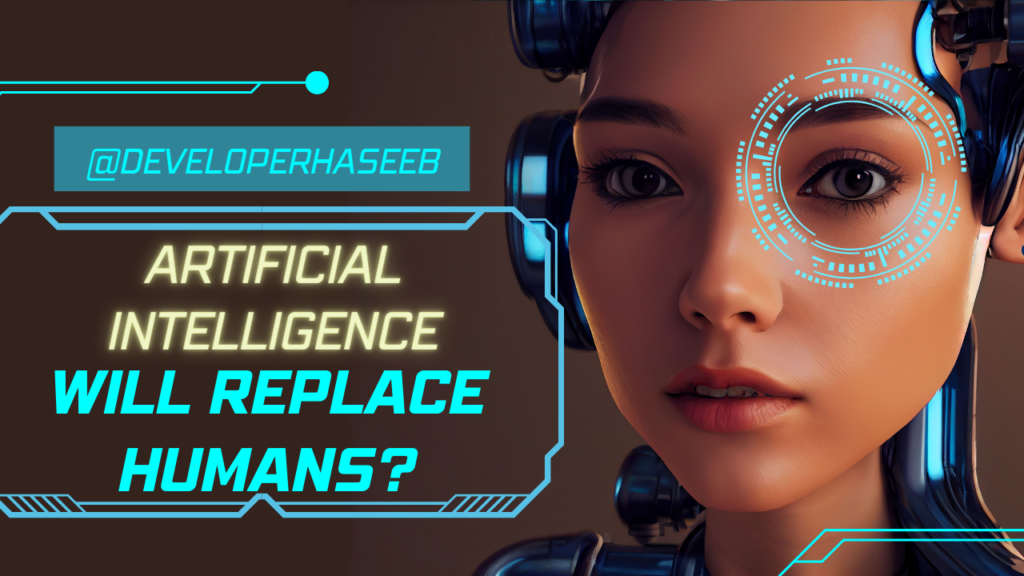Facebook
Twitter
LinkedIn
Table of Contents
Explore the concept of what is artificial intelligence and its prevalence in modern technology, from cloud-based enterprise applications to consumer apps and embedded firmware. Discover how AI simulates human intelligence through software-coded heuristics in various facets of our daily lives.
What is Artificial Intelligence
The year 2022 brought AI into the mainstream through widespread familiarity with applications of Generative Pre-Training Transformer. The most popular applications are OpenAI’s DALL-E text-to-image tool and ChatGPT. The widespread fascination with ChatGPT made it synonymous with AI in the minds of most consumers. However, it represents only a small portion of the ways that AI technology is being used today. The ideal characteristic of what is artificial intelligence lies in its capacity to rationalize and execute actions aimed at achieving a particular goal optimally. Within the realm of artificial intelligence lies a subset known as machine learning (ML). Machine learning entails the concept that computer programs can autonomously learn from and adapt to new data without human intervention. Deep learning techniques facilitate this autonomous learning process by assimilating vast volumes of unstructured data, including text, images, or video.- Artificial intelligence (AI) refers to the simulation or approximation of human intelligence in machines.
- The goals of artificial intelligence include computer-enhanced learning, reasoning, and perception.
- AI is being used today across different industries from finance to healthcare.
- Weak AI tends to be simple and single-task oriented, while strong AI carries on tasks that are more complex and human-like.
- Some critics fear that the extensive use of advanced AI can have a negative effect on society.
What Are 4 Types of AI?
Artificial intelligence can be categorized into one of four types:
- Reactive AI uses algorithms to optimize outputs based on a set of inputs. Chess-playing AIs, for example, are reactive systems that optimize the best strategy to win the game. Reactive AI tends to be fairly static, unable to learn or adapt to novel situations. Thus, it will produce the same output given identical inputs.
- Limited memory AI can adapt to past experience or update itself based on new observations or data. Often, the amount of updating is limited (hence the name), and the length of memory is relatively short. Autonomous vehicles, for example, can “read the road” and adapt to novel situations, even “learning” from past experience.
- Theory-of-mind AI are fully-adaptive and have an extensive ability to learn and retain past experiences. These types of AI include advanced chat-bots that could pass the Turing Test, fooling a person into believing the AI was a human being. While advanced and impressive, these AI are not self-aware.
- Self-aware AI, as the name suggests, become sentient and aware of their own existence. Still in the realm of science fiction, some experts believe that an AI will never become conscious or “alive”.
Will AI replace humans
The question of whether AI will replace humans is a complex and debated topic. Here are some points to consider:- Automation of Routine Tasks: AI is already replacing humans in certain tasks, especially those that are repetitive, rules-based, and easily automated. This includes tasks in manufacturing, data entry, customer service, and more.
- Augmentation vs. Replacement: In many cases, AI is augmenting human capabilities rather than outright replacing them. AI systems can assist humans in decision-making, analysis, and problem-solving, making human workers more efficient and productive.
- New Opportunities: While AI may eliminate some jobs, it also creates new opportunities. As AI technology advances, new roles and industries emerge, requiring human skills such as creativity, empathy, critical thinking, and complex problem-solving.
- Limitations of AI: Despite significant advancements, AI still has limitations. Current AI systems lack true understanding, creativity, intuition, and emotional intelligence—qualities that are essential for many tasks and professions. Human judgment and oversight are often necessary to ensure the ethical and responsible use of AI.
- Collaboration: The most effective use of AI may involve collaboration between humans and machines. Humans can provide context, empathy, and ethical judgment, while AI can provide data-driven insights, automation, and efficiency.
- Socioeconomic Impacts: The widespread adoption of AI will have significant socioeconomic impacts. It may lead to job displacement in certain sectors, exacerbate income inequality, and require retraining and upskilling of the workforce to adapt to new roles.

I do believe all the ideas youve presented for your post They are really convincing and will certainly work Nonetheless the posts are too short for novices May just you please lengthen them a little from subsequent time Thanks for the post
you are in reality a good webmaster The website loading velocity is amazing It sort of feels that youre doing any distinctive trick Also The contents are masterwork you have done a fantastic job in this topic
I’ve been visiting this site for years, and it never fails to impress me with its fresh perspectives and wealth of knowledge. The attention to detail and commitment to quality is evident. This is a true asset for anyone seeking to learn and grow.